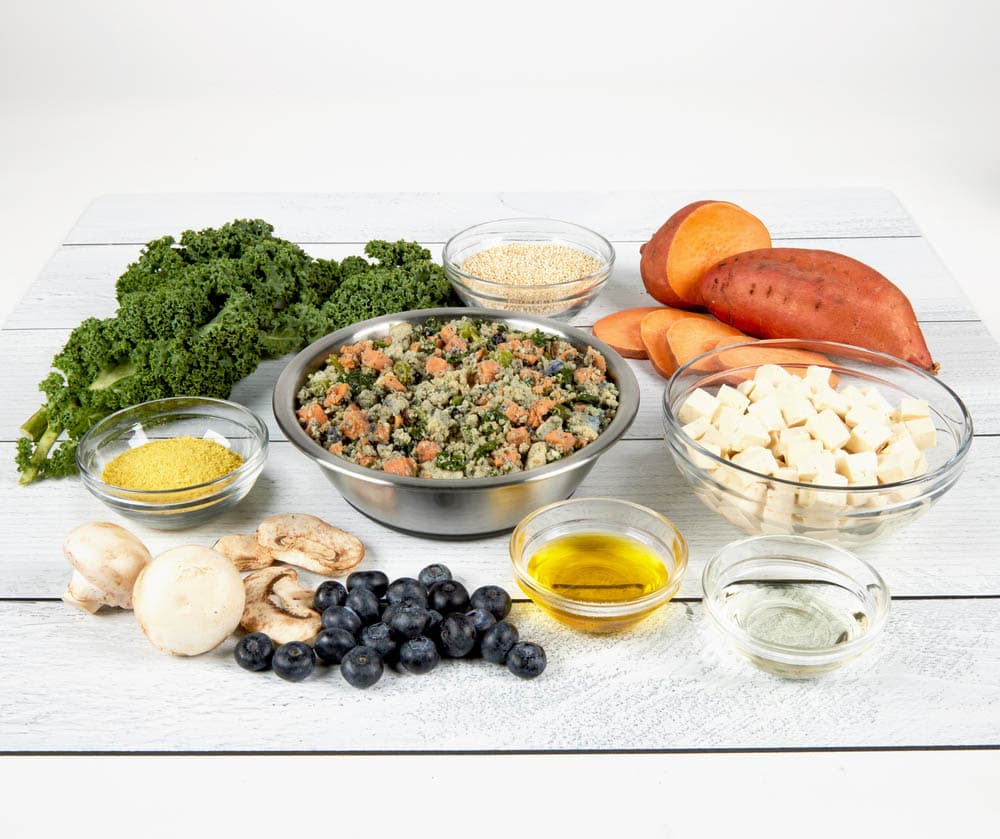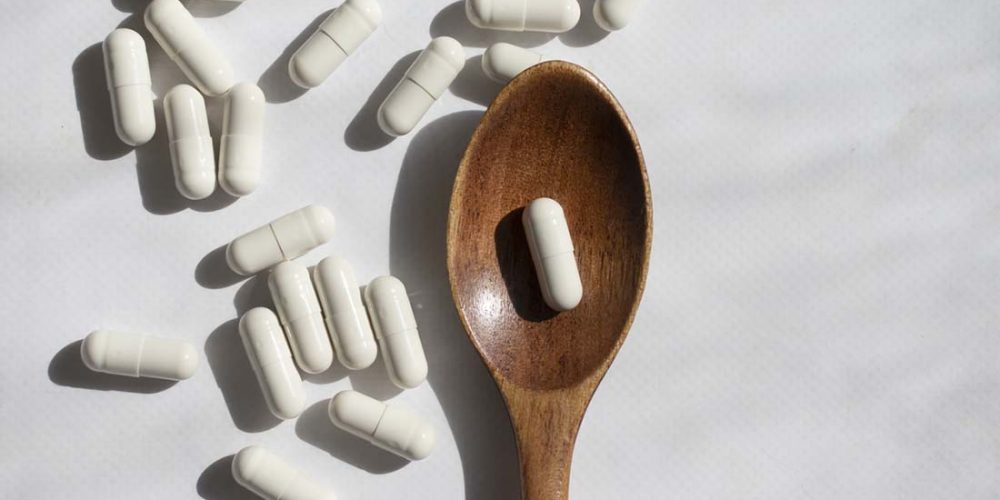Summary
TL;DR: Can fresh food really boost your dog’s energy?
Yes—and here’s why:
-
Fresh food is easier to digest, delivering more usable energy
-
High-quality nutrients help maintain lean muscle mass
-
Better nutrition = better mood, focus, and playfulness
-
Many pet parents report improved vitality within weeks
Curious how a fresh diet can make your pup feel more energetic and alive?
Keep reading to learn what the science—and real dog parents—have to say.
Did you know that what your dog eats directly impacts their brain chemistry and energy levels? The connection between fresh food and canine vitality goes far beyond simple sustenance – it’s a scientific reality that’s transforming how we think about pet nutrition.
According to the University of Arizona, “Well-balanced meals do more than just sustain energy; they also enhance longevity and overall wellness [of canine companions].”
Just as humans experience energy crashes from processed foods, dogs fed traditional kibble may face similar challenges. The switch to fresh food isn’t just about tastier meals; it’s about unlocking your dog’s natural vitality and creating the foundation for a longer, more energetic life.
The Impact of Diet on Your Dog’s Health and Vitality

A dog’s diet directly influences both their physical health and behavioral patterns. The central nervous system, particularly the brain, relies heavily on proper nutrition to function optimally.
Essential nutrients like DHA, antioxidants, and omega-3 fatty acids play crucial roles in maintaining mental alertness, cognitive function, and stable moods in dogs.
Dogs consuming unbalanced meals may display low energy, irritability, and anxiety. These nutritional gaps may trigger problems like digestive upset and neurological complications, impacting their daily energy levels.
The connection between diet and longevity is undeniable. A well-balanced diet supports key aspects of canine health. Quality nutrition acts as a foundation for overall wellness, helping dogs maintain consistent energy levels throughout their lives.
When dogs receive proper nutrition, they exhibit better muscle strength, enhanced immune response, and improved mental clarity. This holistic approach to feeding ensures that every system in their body functions at its best, contributing to a longer, healthier life span.
Specific Benefits of Fresh Food

Studies show dogs who switch to fresh food diets often experience a remarkable boost in their vitality and stamina. Unlike kibble-fed pets who may face energy crashes throughout the day, fresh-fed dogs maintain steady, sustainable energy levels that support their natural activity patterns.
The digestive benefits of fresh food are equally impressive. With higher moisture content and better digestibility, fresh meals allow dogs to absorb more nutrients while putting less strain on their digestive system. This enhanced absorption typically results in smaller, firmer stools and fewer instances of stomach upset.
Pet parents frequently report transformative changes after transitioning to fresh food. Dogs often develop shinier, healthier coats with noticeably reduced shedding. Their skin conditions improve, and allergy symptoms diminish thanks to the natural anti-inflammatory properties of fresh ingredients and essential fatty acids. Many owners also observe increased enthusiasm during meal times, suggesting greater palatability and satisfaction with fresh food options.
The Essential Building Blocks of Fresh Food

High-quality proteins form the foundation of a vibrant, healthy canine diet. These proteins, sourced from wholesome meats, poultry, fish, and eggs, provide the essential amino acids needed for maintaining strong muscles, healthy skin, and robust cartilage. Dogs receiving adequate protein show greater strength and stamina during physical activities.
Fats and carbohydrates work together to fuel your dog’s daily adventures. While fats support cell membrane structure and hormone production, carbohydrates provide steady energy throughout the day. Fresh food delivers these nutrients in balanced proportions, helping avoid the energy spikes and crashes often seen with processed foods.
Omega-3 fatty acids play a crucial role in promoting overall wellness. These powerful nutrients help reduce inflammation throughout the body, encourage healthy coat growth, and even contribute to improved mood and reduced anxiety levels. Fresh food sources naturally rich in omega-3s support joint health and cognitive function.
Antioxidants in fresh ingredients act as cellular defenders, protecting against harmful free radicals that can damage cells. These compounds support brain function, help maintain cognitive abilities as dogs age, and contribute to overall vitality. Fresh vegetables and fruits provide these essential nutrients in their most bioavailable form.
Transitioning to a Fresh Food Diet

Switching your dog to fresh food requires a thoughtful, gradual approach to prevent digestive upset. Start by mixing 25% fresh food with 75% of your dog’s current kibble during the first few days. This gentle introduction allows their digestive system to adapt naturally to the new diet.
Over the next week, increase the fresh food portion to 50% while reducing kibble to 50%. Watch for signs of comfortable digestion, including firm stools and normal eating patterns. Your dog’s energy levels and enthusiasm during meals can indicate successful adaptation to the new diet.
Many dogs show positive changes within the first few weeks of transitioning. Look for improvements in coat shine, reduced gas, and consistent energy levels throughout the day. If you notice any digestive issues, simply slow down the transition pace.
Balance remains crucial during this change. Consider your dog’s age, size, and activity level when portioning fresh meals. A balanced fresh diet should contain appropriate ratios of proteins, fats, and carbohydrates to maintain optimal health. Consulting with your veterinarian helps ensure your dog’s specific nutritional needs are met during this dietary shift.
Relevant Studies on Nutrition and Vitality
Scientific evidence strongly supports the superior nutritional value of fresh dog food compared to processed alternatives. Multiple studies demonstrate that fresh meals retain higher levels of vitamins, minerals, and essential enzymes due to minimal processing. Dogs consuming fresh diets consistently show improved digestive efficiency and reduced allergic reactions.
Clinical observations reveal remarkable improvements in dogs switched to fresh food diets. Enhanced energy levels become apparent within weeks, while digestive issues often resolve naturally.
Long-term studies indicate that dogs maintained on fresh food diets exhibit better cognitive function and sustained vitality throughout their lives. These findings align with emerging research showing the direct connection between whole-food nutrition and optimal canine health outcomes.
Tips for Pet Parents

Measuring daily food portions requires careful attention to your dog’s individual needs. Calculate portions based on weight, age, and activity level, adjusting serving sizes if you notice changes in body condition. For active dogs, increase portions by 10-15% to maintain energy levels, while less active pets may need reduced amounts to prevent weight gain.
Monitor your dog’s eating patterns and digestive health closely during mealtimes. Watch for consistent appetite, regular eating schedules, and normal stool consistency. Fresh food typically results in smaller, firmer stools due to better nutrient absorption. If you notice any changes in eating habits or digestive patterns, document them for discussion with your veterinarian.
Address potential dietary concerns promptly by working with your veterinary team. Common issues like food sensitivities or digestive upset often resolve by adjusting portion sizes or slowing the transition pace. Keep a food diary to track any reactions or changes in energy levels.
For ongoing support, connect with certified veterinary nutritionists or reputable fresh food manufacturers. Many offer feeding guidelines, portion calculators, and customer support to help optimize your dog’s diet. Online resources and feeding charts can provide additional guidance for maintaining proper nutrition throughout your pet’s life stages.
Long-Term Health Improvements

Dogs thriving on fresh food diets consistently demonstrate remarkable health improvements that compound over time. Within the first few weeks, many pet owners notice enhanced digestive function and increased energy levels. Their dogs display shinier coats, reduced shedding, and improved skin condition – early indicators of positive systemic changes.
As months progress, the benefits become more pronounced. Dogs typically maintain healthier body weights, show greater muscle definition, and exhibit sustained vitality throughout their daily activities. Their immune systems strengthen, leading to fewer seasonal allergies and skin irritations. Many owners report reduced veterinary visits for common ailments.
The most significant impacts emerge over years of fresh feeding. Dogs often maintain cognitive sharpness well into their senior years, thanks to the brain-boosting nutrients in fresh ingredients. Their joint health remains robust, supporting active lifestyles longer than expected. The anti-inflammatory properties of fresh food help prevent chronic conditions, while proper nutrient absorption supports organ function throughout aging.
Enhanced quality of life manifests through consistent energy levels, maintained mobility, and sustained mental acuity. Dogs on fresh food diets frequently remain playful and engaged well into their golden years, showcasing the profound impact of optimal nutrition on longevity and vitality.
A Fresh Start for Your Dog’s Energy
The evidence is clear: fresh food may revolutionize your dog’s energy levels and overall well-being. From enhanced digestive health to improved cognitive function, the benefits of switching to fresh food extend far beyond the bowl. The transformation begins with that first meal and continues to build throughout your pet’s lifetime.
While the transition requires careful planning and patience, the lasting impact on your dog’s vitality makes it worthwhile. By choosing fresh food, you’re not just feeding your dog – you’re investing in their energy, happiness, and longevity, setting them up for a vibrant, active life filled with boundless enthusiasm.
This content is for informational use only and does not replace professional nutrition and/or medical advice, diagnosis, or treatment. It is not a substitute for and should not be relied upon for specific nutrition and/or medical recommendations. Please talk with your veterinarian about any questions or concerns.
“Nutrition for Dogs with Cognitive Dysfunction Syndrome (CDS) | VCA Animal Hospitals.” n.d. Vca. https://vcahospitals.com/know-your-pet/nutrition-for-dogs-with-cognitive-dysfunction-syndrome-cds.
Kei Anne Baritugo, Allah Bakhsh, Bosung Kim, and Sungkwon Park. 2023. “Perspectives on Functional Foods for Improvement of Canine Health and Treatment of Diseases.” Journal of Functional Foods 109 (October): 105744–44. https://doi.org/10.1016/j.jff.2023.105744.
“A Science-Based Guide for Pet Owners.” 2006. https://nap.nationalacademies.org/resource/10668/dog_nutrition_final_fix.pdf.
Bosch, G., B. Beerda, W. H. Hendriks, A. F. B. van der Poel, and M. W. A. Verstegen. 2007. “Impact of Nutrition on Canine Behaviour: Current Status and Possible Mechanisms.” Nutrition Research Reviews 20 (2): 180–94. https://doi.org/10.1017/s095442240781331x.
Fan, Zhicong, Zhaowei Bian, Hongcan Huang, Tingting Liu, Ruiti Ren, Xiaomin Chen, Xiaohe Zhang, Yingjia Wang, Baichuan Deng, and Lingna Zhang. 2023. “Dietary Strategies for Relieving Stress in Pet Dogs and Cats.” Antioxidants 12 (3): 545. https://doi.org/10.3390/antiox12030545.





